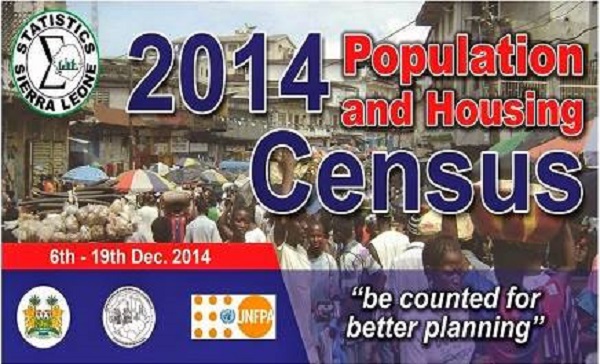Ninety one percent of the country’s Section Chiefs have claimed that their localities were not covered by Statistics Sierra Leone (SSL) in line with the UN Handbook on Population Census processes which mandates a quick count of households in each locality, the Institute for Governance Reform has claimed.
The leading Sierra Leone think tank claimed in its report launched yesterday that a recent census monitoring report shows that only 9% of Section Chiefs noted that their localities were covered, while 91.0% of Section Chiefs indicated that their localities were not covered by Statistics Sierra Leone to ensure a complete listing of households.
“It leaves our team to wonder how the “QUICK COUNT OF HOUSEHOLDS” by District (especially those under verification) was calculated at the conclusion of the cartographic map updating exercise when a reported less than 10.0% of the localities were covered by the Cartographic Teams”, Andrew Lavali, Executive Director of IGR queried.
IGR also noted that the majority of local authorities at the grassroots level (namely section chiefs), did not know that a cartographic map updating took place, which indicate that the teams did not cover most of their towns and villages.
The report states that in previous censuses, local leaders have been instrumental in household listing, making a census institutionalized among indigenous cultures.
For example among the Mendes, census is referred to as Peh Gbaa …meaning counting houses. For Temnes a household is called “Tha Fus” and “Maweh” in Mende. Local communities interviewed by IGR said they had expected SSL staff to visit their localities to count their households. SSL has not established any census committee at chiefdom level.
Meanwhile IGR also claimed in its report that the Census Management Team still remains the same and SSL has extended the contracts of the DCOs who are mostly politicians to handle the important role of census logistics and oversee data collection in designated districts. “This, we believe, has the capacity to undermine public trust and confidence in the census process”, Lavali said.
The IGR had in its Critical Perspectives of Governance report published in January 2015 claimed that 9 out of the 14 District Census officers are ruling party politicians. On the basis of the report President Koroma postponed the Census to December this year. But it remained to be seen if after at least two postponements, the National Housing and Population Census which is still bedeviled with controversies will go ahead as planned.



 Post a comment
Post a comment 










